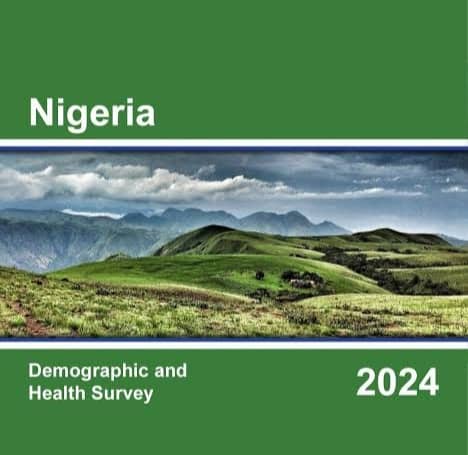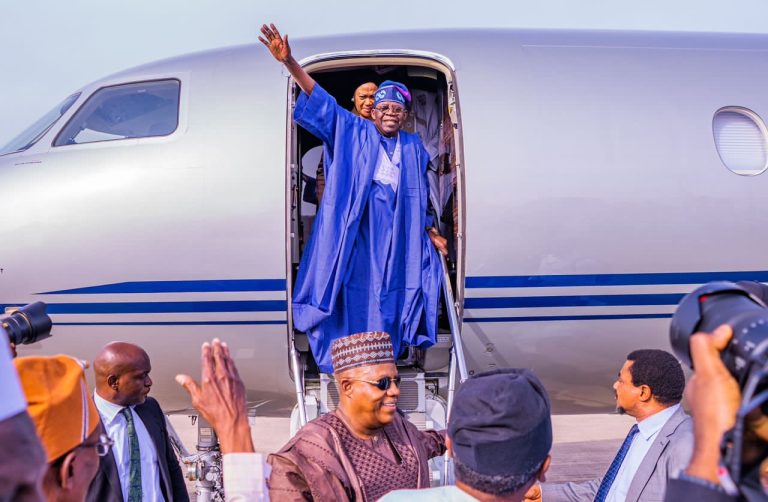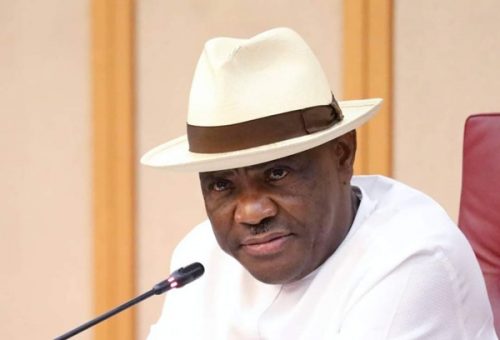News
Lagos begins consultations on 2026 budget

The Lagos State Government has commenced consultations on the 2026 budget with a call for residents’ active participation in shaping the fiscal priorities of the state.
Speaking at the opening session of the Budget Consultative Forum for the Ikeja Division held at the Multipurpose Hall of Radio Lagos, Agidingbi, the Commissioner, Ministry of Economic Planning and Budget, Ope George, said the exercise was designed to give citizens a voice in the budget process while also providing updates on the performance of the 2025 budget.
“This is the first of our visits into the divisions of the state. We are here to hear from our people what they want to see in the 2026 budget. It also gives us an opportunity to report back on what they requested in 2025 and to give a scorecard of what has been achieved,” he said.
George disclosed that the state had attained over 80 per cent budget performance so far in 2025, both in revenue generation and expenditure.
According to him, Lagos is optimistic about meeting its Internally Generated Revenue (IGR) target for the year.
“We are building on the gains of 2025. Our IGR is growing and as of August–September, we have hit about 80 per cent of our target. Last year, we met our IGR target and we are confident that 2025 will follow the same path,” he added.
The Permanent Secretary noted that the state was investing heavily in infrastructure, but also prioritising social protection, healthcare, education, and agriculture.
He said the state’s agribusiness initiative, Lagos Produce, would be expanded to ensure food security.
Also speaking, the Commissioner for Youth and Social Development, Mobolaji Ogunlende, raised concerns over the rising rate of drug abuse among young people in Lagos.
Describing the menace as a “pandemic,” Ogunlende said the ministry had established a special department under the Lagos State Kicks Against Drug Abuse (LASCADA) programme to tackle the crisis.
“At the moment, our rehabilitation centres are full. Drug abuse is something we see on our streets and in our homes. At least 35 per cent of our youths are dependent on substances,” he stated.
He noted that the state was working with the NDLEA, private institutions, and civil society groups to provide advocacy, rehabilitation, and rescue services, while urging communities to take ownership of the fight against drug abuse.
The Budget Consultative Forum, which runs from September 9–16, 2025, will be held across the state’s divisions, with participation from traditional rulers, professional bodies, civil society organisations, trade groups, persons with disabilities and youths.
News
NDHS: Nigerian regions show huge disparity in spousal earnings

• South South most equal
By Grace Edet
New data from the 2024 Nigeria Demographic and Health Survey (NDHS) has revealed major regional disparities in spousal earnings, showing that most Nigerian wives aged 15–49 earn less than their husbands, despite growing pockets of income equality across the country.
According to figures shared by Statisense on Tuesday, the trend is most pronounced in the North-West, where 941 in 1,000 wives earn less than their husbands, while only 29 in 1,000 earn more. The region also recorded the lowest rate of non-earning husbands, with just 7 in 1,000 women reporting partners with no income.
In contrast, the South South posted the strongest levels of income parity. The region recorded 113 in 1,000 wives earning the same as their husbands, the highest nationwide. It also had the largest share of women earning more than their spouses at 61 in 1,000.
The North East also showed notable shifts. While 30 in 1,000 wives out-earn their husbands, one of the highest shares in the country, the region still reported that 888 in 1,000 women earn less, reflecting wide inequality despite emerging improvements.
The North Central displayed more balanced figures, with 46 in 1,000 women earning more, and 65 in 1,000 earning equally, though 848 in 1,000 wives still fall below their husbands’ income levels.
In the South East, income gaps remain significant but show signs of narrowing. The data shows 57 in 1,000 wives earn more, 82 in 1,000 earn equally, while 775 in 1,000 still earn less than their husbands.
For the South West, 45 in 1,000 wives earn more, and 75 in 1,000 earn the same, but 824 in 1,000 wives still earn below their husbands’ earnings. Only 11 in 1,000 husbands reported having no income.
The NDHS 2024 findings highlight a consistent national pattern: while traditional income structures remain strong, especially in northern regions, the southern zones, particularly the South South, are showing faster shifts toward income equality within households.
Experts say the trend reflects broader economic realities, including rising female participation in formal work, regional differences in literacy levels, and contrasting socio-cultural expectations about household roles.
The full survey continues to shape policy discussions on women’s economic empowerment, labour participation, and regional development priorities.
News
Tinubu heads to South Africa, Angola for G20, AU–EU summits

By Grace Edet
President Bola Tinubu will ton Wednesday depart Abuja for Johannesburg, South Africa and Luanda, Angola to attend the G20 Leaders’ Summit and the AU–EU Summit.
His itinerary was confirmed in a statement issued on Tuesday by Presidential Spokesperson, Mr. Bayo Onanuga.
“President Bola Tinubu will depart Abuja on Wednesday for a two-nation visit to Johannesburg, South Africa and Luanda, Angola,” Onanuga said.
He added that the President’s first stop would be Johannesburg for the 20th G20 Leaders’ Summit before proceeding to Angola for the AU–EU gathering.
“President Tinubu’s first stop is Johannesburg, where he will attend the 20th Summit of the G20 Leaders. After the summit, he will proceed to Angola for the AU–EU Summit,” he said.
According to Onanuga, the invitation was formally extended by South Africa’s President Cyril Ramaphosa, who currently chairs the G20, and the same request had earlier been made by Brazil’s President Luiz Inácio Lula da Silva during his 2024 tenure.
The G20 Summit, holding from November 22 to 23 at the Johannesburg Expo Centre, will host leaders of the world’s largest economies, alongside representatives of the African Union, European Union, and top global institutions.
Deliberations will be guided by the theme “Solidarity, Equality, Sustainability”and will span three plenary sessions focusing on: Inclusive and Sustainable Growth, including financing for development, trade, and the global debt burden; Building a Resilient World, covering climate change, disaster risk reduction, food systems, and just energy transition; A Fair and Just Future, with discussions on critical minerals, decent work, and artificial intelligence.
Tinubu is expected to hold bilateral meetings on the sidelines to advance Nigeria’s Renewed Hope Agenda and deepen cooperation on regional peace, economic security, and global development.
After the G20 sessions, the President will join African and European leaders at the 7th AU–EU Summit scheduled for November 24 to 25 in Luanda.
Onanuga said the forum will bring together “young leaders, innovators and Civil Society Organisations to brainstorm on some of the shared challenges of the two unions.”
He added that discussions would shape recommendations on climate change, inclusive development, infrastructure, the digital economy, manufacturing, agribusiness, and the creative industries.
Tinubu will be accompanied by key cabinet members, including the Minister of Foreign Affairs, Yusuf Tuggar; Minister of Finance, Wale Edun; Minister of Solid Minerals, Dele Alake; Minister of Trade and Investment, Jumoke Oduwole; and the Director-General of the National Intelligence Agency, Ambassador Mohammed Mohammed.
The President is expected to return to Nigeria at the conclusion of the two meetings.
News
Wike’s action defended civilian supremacy, says ex-lawmaker

A former member of the House of Representatives, Hon. Johnson Egwakhide Oghuma, has said that Minister of Federal Capital Territory, Nyesom Wike, didn’t defend a piece of land, but the very principle of civilian supremacy on which democracy rested.
Oghuma said the officer’s conduct was a betrayal of both discipline and duty.
The former lawmaker, who spoke in a statement issued in Benin City, said the uniform remained a national symbol and not a license for impunity or to be used as a weapon against the law it was sworn to protect.
Oghuma said the officer desecrated the uniform and undermined the honour of the institution he represented when he abandoned his professional duty to act as an enforcer in a land dispute.
According to him, “What cannot be tolerated is a situation where armed personnel intimidate civil authorities or obstruct lawful administrative processes. Such conduct is nothing short of an abuse of power and a direct affront to civilian governance.
“The lesson from this episode is that the rule of law must remain supreme. Ministers, soldiers, and civilians alike are bound by the same legal framework. The FCTA should publish the full documentation on the disputed land to reinforce transparency, while the Defence authorities must reaffirm their commitment to non-interference in civil matters.
“If the incident leads to disciplinary action, public accountability, and renewed respect for due process, it would mark a positive turning point for governance in the Federal Capital Territory. Abuja cannot be a city where might overrides right. The capital should be a model of lawful order — where even those in uniform bow to the authority of law.”
“Minister Wike’s response, therefore, was not merely a personal reaction but an assertion of the authority of civil institutions over unlawful force. The FCT Administration is constitutionally empowered to regulate land ownership and urban development within Abuja. If that authority can be defied by a handful of armed officers, then the entire structure of urban administration collapses into impunity. In this light, Wike’s insistence that “no one is above the law” is both timely and necessary.
“That said, the incident also highlights the urgent need for better coordination between civilian and military institutions. Disputes involving government land or military establishments should be addressed through inter-agency channels — not confrontation at construction sites.
The Defence Headquarters must take disciplinary action against the officer involved, both to restore public confidence and to demonstrate that the Nigerian Armed Forces remain an institution of discipline, not disorder.
The Nigerian public holds the military in high esteem for its sacrifices in defending the nation. But such respect is sustained only when the military itself upholds the law it swore to defend. Deploying soldiers in a private or unauthorized capacity erodes that respect and sends a dangerous message to the public — that power can be used to subvert justice.
-

 Art & Life8 years ago
Art & Life8 years agoThese ’90s fashion trends are making a comeback in 2017
-

 Entertainment8 years ago
Entertainment8 years agoThe final 6 ‘Game of Thrones’ episodes might feel like a full season
-

 Art & Life8 years ago
Art & Life8 years agoAccording to Dior Couture, this taboo fashion accessory is back
-

 Entertainment8 years ago
Entertainment8 years agoThe old and New Edition cast comes together to perform
-

 Sports8 years ago
Sports8 years agoPhillies’ Aaron Altherr makes mind-boggling barehanded play
-

 Entertainment8 years ago
Entertainment8 years agoMod turns ‘Counter-Strike’ into a ‘Tekken’ clone with fighting chickens
-

 Entertainment8 years ago
Entertainment8 years agoDisney’s live-action Aladdin finally finds its stars
-

 Business8 years ago
Business8 years agoThe 9 worst mistakes you can ever make at work





